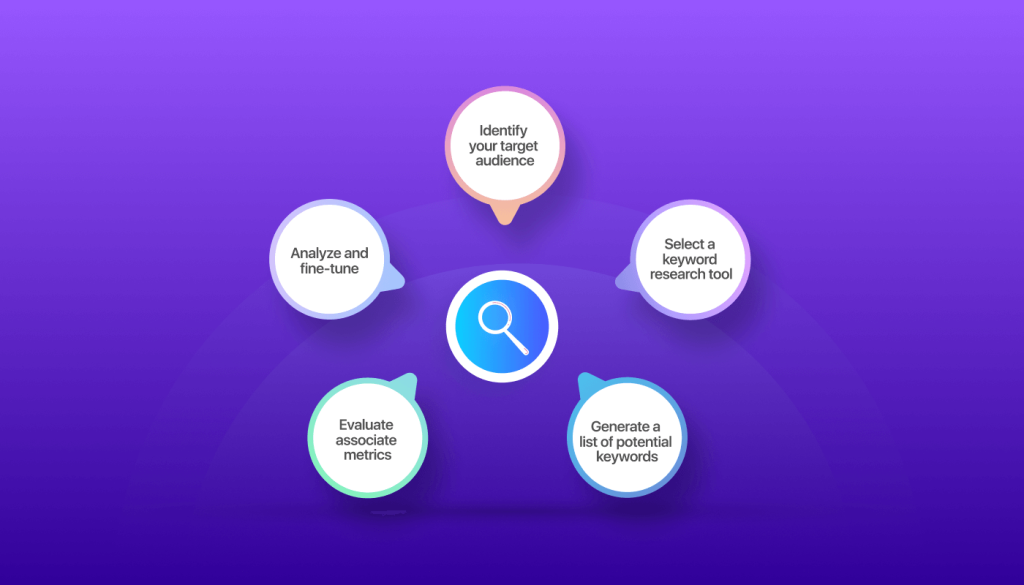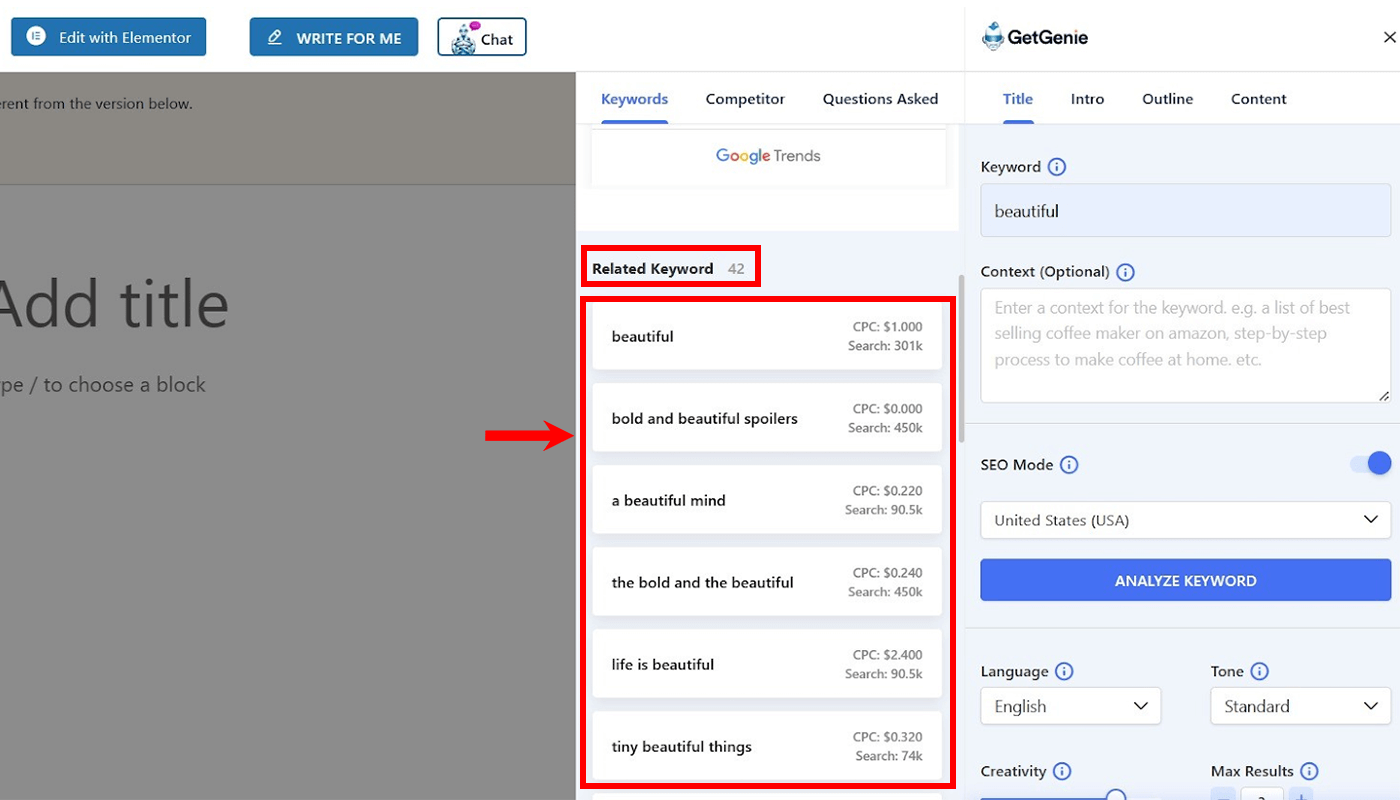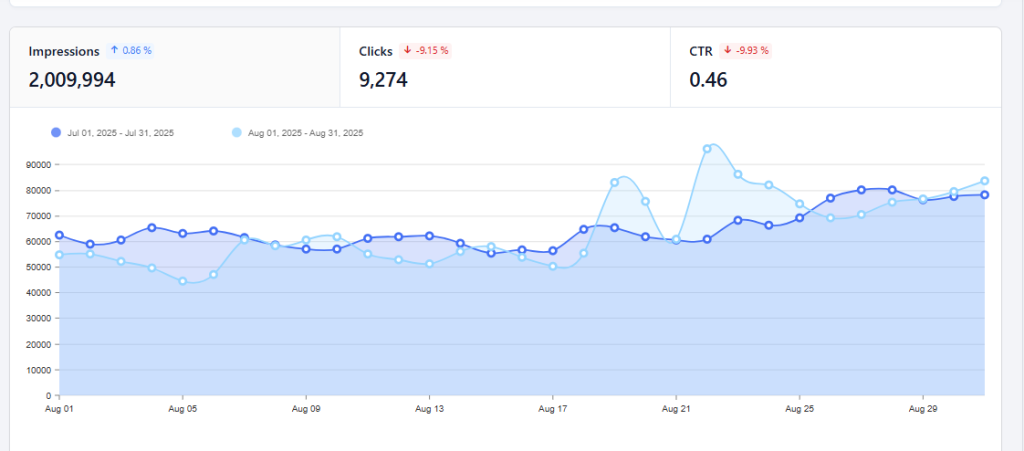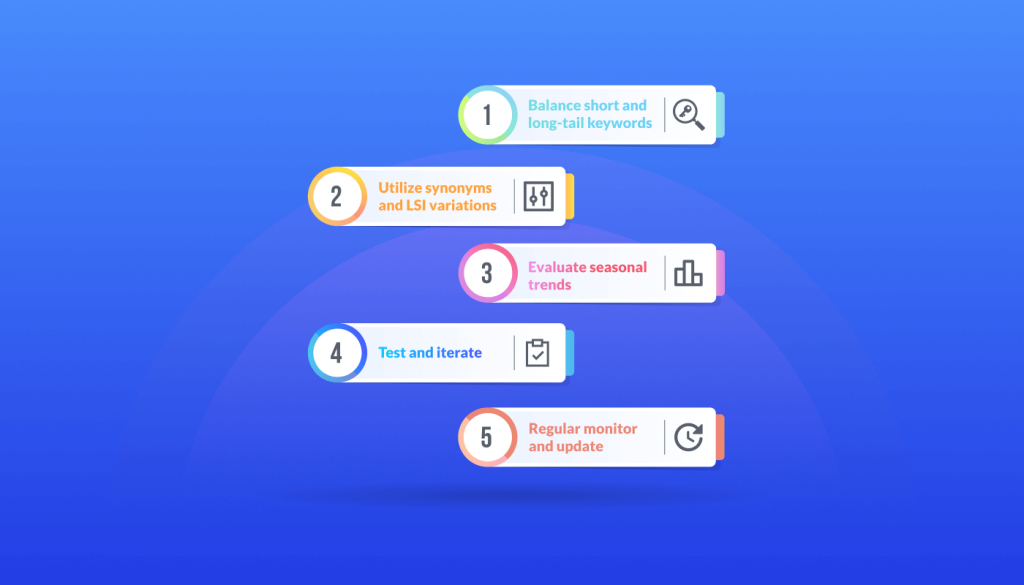How to do Keyword Research for Blog: Step by Step Guide

Keyword research is essential for effective blogging. It’s all about knowing what your audience wants and making your blog visible online. However, this process involves some strategic step.
In this guide, I’ll show you effective steps on how to do keyword research for blog posts, using the right tactics and right tools.
Let’s get started!
What is Keyword Research in Blogging?
Keyword research in blogging involves finding and analyzing words used in online searches related to your blog. Proper keyword research helps to understand your audience’s search behavior. Also, it helps improve your blog’s visibility in search engines.
Before getting started with the keyword search steps for blog posts, let’s explore the common types of SEO keywords:
| Keyword Type | Description | Example |
|---|---|---|
| Seed Keywords | – Foundational terms for broader exploration – Usually one or two words | “Travel” |
| Short-Tail Keywords | – Brief and general terms, typically one to three words – Generate broad search results. | “Travel destinations” |
| Long-Tail Keywords | – More specific and extended phrases for niche-based audiences – Capture user intent precisely | “Budget-friendly travel destinations in Asia” |
| Informational Keywords | – Phrases are used when users seek information like “how to,” “what is,” or “tips for” – Aim to educate or answer specific queries | “How to plan a budget-friendly trip” |
| Product-Based Keywords | – Indicating user intent for making a purchase or taking a specific action – Mostly include produce/service reviews, “best 10”, “top 5” etc phrases | “5 Best travel backpacks 2023” |
| LSI Keywords | – Words or phrases linked to the main keyword – Provide context and aiding content relevance | “Travel packing checklist” |
How to do Keyword Research for Blog Posts: Step-by-step Guide

Keyword research for blog posts is not just about finding words; it’s also about discovering the language your audience speaks.
Here are 5 simple steps on how to do keyword research for a blog:
1. Identify Your Target Audience
Understanding your target audience is a must. By identifying their search intent, demographics, and regional preferences, you can create your content to meet their specific needs.
✅ Actionable Steps:
- Conduct audience research to determine what topics resonate with your readers.
- Utilize tools like Google Analytics to gather insights into your audience demographics.
- Consider their regional preferences and language to refine your keyword strategy.
2. Select a Keyword Research Tool
Keyword research tools provide advanced insights to analyze vast amounts of data. You will get keyword suggestions with accurate results.
✅ Actionable Steps:
- Choose a reputable keyword research tool such as SEMrush, Ahrefs, or Google Keyword Planner.
- You can also choose AI-powered tools for keyword research like GetGenie AI for more optimized results. It also offers a user-friendly interface in both WordPress and your browser with comprehensive databases for expansive keyword suggestions.
- Explore features like natural language processing, trend analysis, competitor gaps, and insights.
3. Generate a List of Potential Keywords
Seed keywords act as a starting point, and keyword research tools can expand this list with related terms. After choosing the right keyword research tool, generate a list of potential keywords to craft content reasoning with your targeted audiences.
For instance, the following image shows a list of semantic keywords shared by GetGenie’s Advanced Keyword Research feature for the seed keyword “AI SEO tool”.

How do you do keyword research for a blog? You can use Genie to directly perform keyword research from the blog editor:
✅ Actionable Steps:
- Input seed keywords related to your blog’s main topics.
- Utilize the tool i.e. GetGenie AI to generate a diverse list of related keywords
- Explore long-tail, short-term fresh keywords, and LSIs, people also asked for variations for a well-rounded keyword strategy.

Check out this blog for conducting keyword research for a blog using GetGenie AI 👉 Mastering AI-powered keyword Research for Free
4. Evaluate the Metrics Associated with Each Keyword
When you have a list of potential keywords, the next step is to measure their matrices to finalize writing blog posts.
Each keyword has metrics such as search volume, SEO difficulty, and CPC. By properly analyzing these factors, you can assess the viability and competitiveness of every keyword.

✅ Actionable Steps:
- Analyze search volume to identify keywords with substantial demand.
- Evaluate SEO difficulty to understand the competition level for each keyword.
- Consider CPC to gauge potential advertising costs associated with keywords.
- Examine trend data to identify keywords with consistent or growing popularity.
5. Analyze and Fine-tune Your List of Keywords
In this step of keyword research, you need to analyze keyword performance metrics. Then identify high-performing search terms, and finalize the relevant keywords. As a result, you can enhance search rankings as well as optimize your content for targeted audiences.
In addition, keyword analysis is a continuous process. So, you have to stay adaptable to industry trends and user behavior to ensure a competitive edge, especially in SEO and PPC campaigns.
Let’s see how to do it.
✅ Actionable Steps:
- Review your keyword list, eliminating irrelevant or overly competitive terms.
- Prioritize keywords aligned with your blog’s goals and audience needs.
- Refine the list based on emerging topics or seasonal variations.
- Diversify with a mix of long-tail and short-tail keywords for a comprehensive content strategy.
5 Effective Keyword Research Tips For Blogging

In this section, I’ll talk about some easy tips for conducting keyword research for blogs. These will help you to incorporate keywords in your content and make them visible, relevant, and appealing to your target audience.
✔ Diversify Keyword Types
- Maintain a balanced approach by incorporating both short-tail and long-tail keywords.
- Use short-tail keywords for broader reach and long-tail keywords for specificity and targeted traffic.
✔ Utilize Synonyms and LSI Variations
- Enhance content relevance and cater to diverse search queries.
- Identify synonyms and Latent Semantic Indexing (LSI) variations of your main keywords to capture a broader audience.
✔ Evaluate Seasonal Trends
- Stay current and capitalize on trending topics for timely content.
- Use tools like Google Trends, and Google Search Console to identify seasonal fluctuations and adjust your keyword strategy accordingly.
✔ Test and Iterate
- Refine your approach based on performance and audience response.
- Conduct A/B testing with different keyword variations to understand what resonates best with your audience.
✔ Regular Monitoring and Update
- Keep your keyword strategy dynamic, and ensure ongoing relevance.
- Monitor keyword performance, and update your strategy based on changing trends.
- Regularly update your content with fresh keywords to reflect changes in user behavior.
What to do after keyword research?
After completing keyword research, you should carry out the following for optimized content:
- Organize keywords and prioritize opportunities
- Map keywords to specific pages that already exist
- Create new content or optimize old content to satisfy search intent
- Implement keyword tracking to gauge progress
- Build backlinks to boost authority
- Be patient while you wait for the traffic to roll in
FAQs
Wrap it Up
I’ve provided a comprehensive guide on “How to do keyword research for blog posts”. By following this guide, hopefully, you can conduct effective keyword research.
Also remember, the journey of doing keyword research continues beyond the blog post. To sustain and amplify your efforts, consider using a powerful keyword research tool like GetGenie AI and optimize your content for both search engines and readers who want valuable content.

